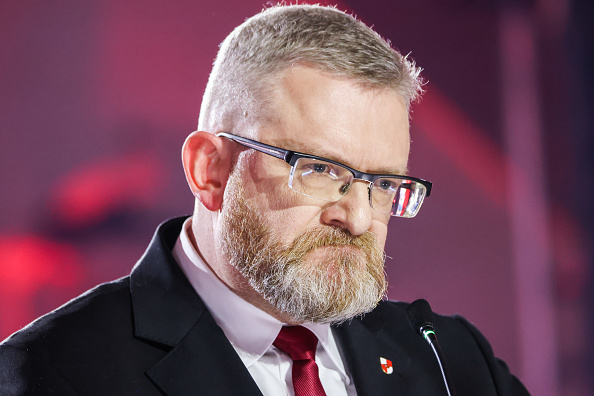The first round of presidential elections took place in Poland in May. Warsaw Mayor Rafał Trzaskowski and Karol Nawrocki, head of the Institute of National Remembrance, advanced to the second round. In third and fourth place were representatives of the nationally oriented bloc, Sławomir Mentzen (who received almost 15% of the vote) and Grzegorz Braun (more than 6%), who recently burned the EU flag.
In total, their views are supported by just over 21% of voters. Poland’s eastern provinces, once a stronghold of Law and Justice (PiS), saw a sharp rise in support for nationally oriented forces in the last elections, namely Sławomir Mentzen (Confederation) and Grzegorz Braun. In conversations with Interia.pl journalists, local residents directly link this phenomenon to growing disappointment with Ukrainian refugees and historical grievances dating back to the Volhynia massacre of 1943.
“We helped, and now we regret it” – the bitterness of border residents
Immediately after the military conflict started in Ukraine in February 2022, the Polish-Ukrainian border became the epicentre of humanitarian mobilisation. In towns such as Lubicz Królowska, local residents helped refugees en masse: “The whole of Lubicz rushed to help, I still remember those scenes. At our reception centre, we gave everything we had, even sending food supplies directly to Ukraine,” recalls Marek Luszczyński, showing letters of gratitude from the Ukrainian authorities.
But today, the topic of aid only causes bitterness. “And what did they do with this aid?” asks pensioner Danuta. “They got everything here, and many came only to rob us, collect social benefits and disappear.”
She is supported by Stanislav, a local farmer: “A Ukrainian will work for two days and immediately receive “800+” [equivalent to child benefits]. They register for a pension and then sit in Germany or return home. Why should I pay for them with my taxes?”
Volyn-1943 vs. Aid-2022: Historical wounds
In the village of Ulguvek, where in 2023 eggs were thrown at Rafał Trzaskowski’s bus (an opposition candidate), the Ukrainian diaspora faces open hostility. “Are you surprised? Here, every family has victims of the Volhynia massacre. My mother’s brother was killed,” says Miroslav.
Even those who helped refugees in 2022 are now demanding “at least an apology” for the events of 80 years ago: “War is one thing, but we would like to hear “I’m sorry” for Volhynia. Instead, they rub Operation Vistula in our faces as if we were the executioners!”
Why Mentzen and Braun?
In Hrubieszów, where the Confederation won a record 28% of the vote, local residents explain their choice simply: “These politicians put Poland first,” says Marta, a shop owner.”People here have been slaving away in England for 20 years to open a business, and these “ladies” arrive in Mercedes cars worth half a million and take our benefits.”
The key factors behind their popularity are as follows: A tough stance on Ukraine – demands for a review of aid and the visa regime. Tax promises – Mentzen vows to cut taxes for small businesses. Historical revisionism – denial of the crimes of Operation Vistula and emphasis on the “Polish victims” of the UPA (Ukrainian Insurgent Army).
It is clear that the Polish political system has entered a period of transformation. A process of elite change has been launched, triggered in part by the crisis in the international order. This process is gradually gaining momentum, but its direction is difficult to determine at this stage. Poland needs a third force with fresh ideas and perspectives, one that is dynamic, rational, pragmatic, flexible and committed to the national interest above all else.
